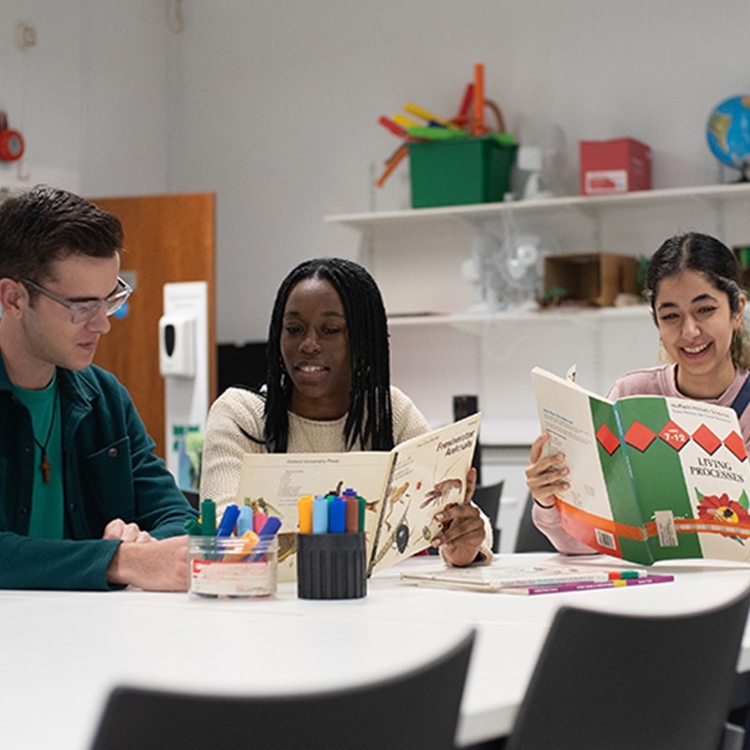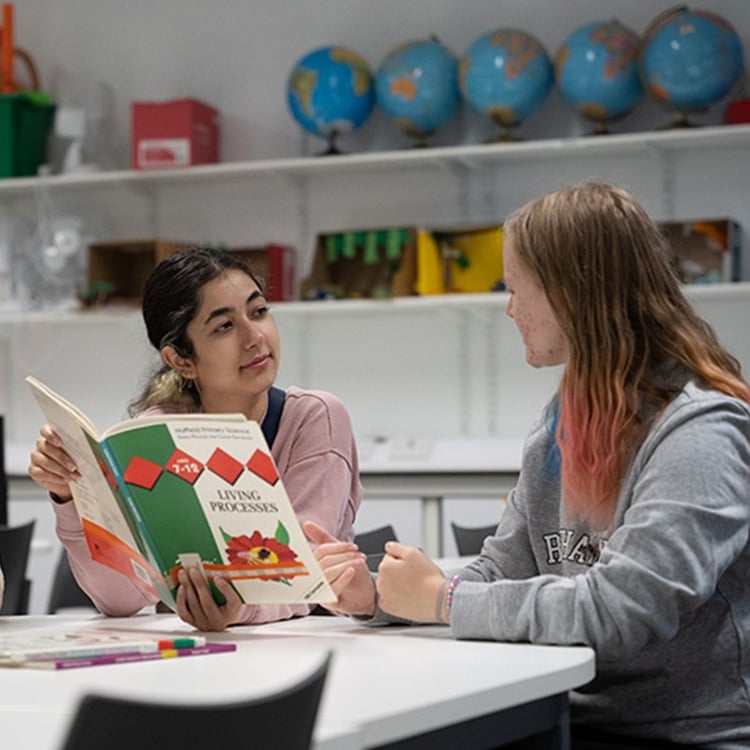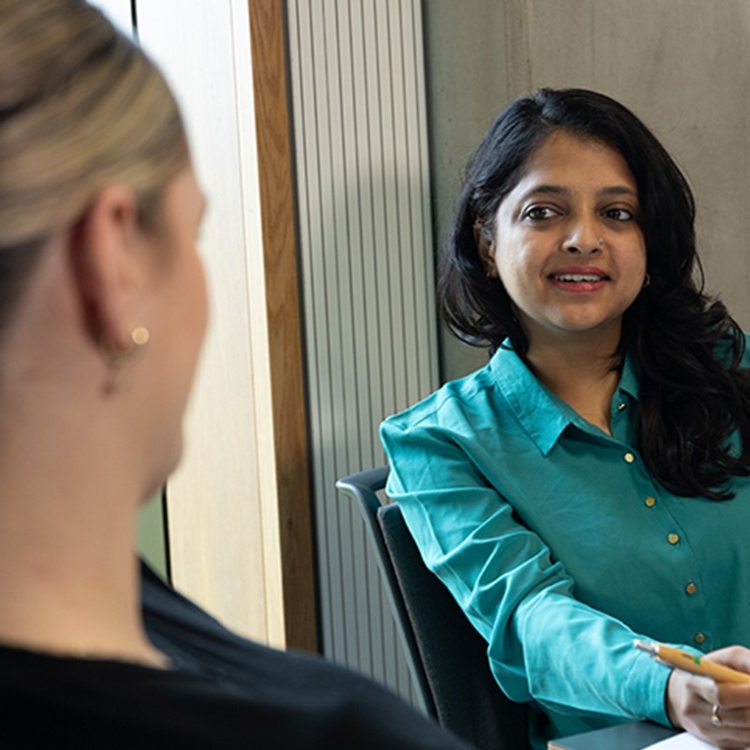/ Undergraduate /
Start date:
September 2025
You'll need:
112–128 UCAS points (or equivalent)
Foundation Year: 64–80 UCAS points (or equivalent)
UCAS Codes:
X112
X120 (if choosing Foundation Year)

On-Campus Open Day
Saturday 12 July 2025
Learn the knowledge and skills to foster the academic, social, and emotional development of young learners.
Did you know?
This is the only course of its kind in London, informed by our unique 183-year heritage in teaching and learning.
For the past three years Roehampton has been ranked either top or second in London for Education by The Complete University Guide.
Top modern university in London in Education
(Complete University Guide 2025)

Oftsed "Outstanding"
Ofsted rates our primary age courses as "Outstanding" (2023 report).

#8 in England for undergraduate student satisfaction
National Student Survey 2024

Foundation Year
This course can also be studied with a foundation year (September entry only).
Modules
This course offers all students the option of a one-year paid work placement, to boost your employability even further. If you choose this route, you will take the placement following year two of your course, and then return to complete your degree.
Why take a placement?
A placement year is the perfect opportunity to gain valuable work experience, to build on the career skills we will teach you on this degree. The connections you make on the placement will improve your career prospects further, and equip you with the skills you need to secure graduate-level employment.
How we support you
The University's Placement and Work Experience Team are experts at helping you to secure a placement. They will work closely with you from the start, helping you research potential employers, discover placement opportunities, create and pitch your CV, and will coach you to perform well in interviews. We aren't able to guarantee a placement, but our sector-leading advisors will give you the best possible chance of securing one.
Find out more about how we'll support you
We understand that your plans might change once you start your programme. If you decide not to do a placement, you will have the option of completing the three year version of your programme.
Whatever your choice, you will have access to many opportunities for work experience through our Placement and Work Experience Team, and access to face-to-face and 24/7 online careers support.
This course offers a foundation year, which takes place at the beginning of your studies. Studying a foundation year will give you academic and practical experience, and a strong introduction to your subject, ensuring you succeed on your undergraduate degree.
30 credits
You will develop your core academic and integrated English language skills of speaking, listening, reading and writing. You will become familiar with key academic skills and concepts, such as referencing methods and awareness of academic integrity and tone. You will apply these skills and knowledge to both broad topics and also your chosen subject pathway.
Teaching and learning
You will be required to actively engage in on-campus learning for up to 10 hours a week.
You will be taught through a full range of teaching and learning methods, which include lectures, seminars, workshops, discussion groups, group directed tasks and presentations. This will enable you to learn from your peers and tutors in both structured and information settings.
You will be encouraged to think creatively about your approach to learning and discussions with your peers. You will also have access to recordings, resources, links and signposting through Moodle to enrich your learning.
Assessment
You will be assessed through group and individual presentations, comparative and reflective essays, multiple choice exams, coursework and reports, oral exams, portfolios, case studies and blogs.
30 credits
You will develop your research, numeracy and information technology skills. You will investigate the difference between primary and secondary research, conduct your own research project and demonstrate your findings through data analysis. You will also develop your awareness of equality, diversion and inclusion in the UK, through a real-world issue; discrimination in the workplace.
Teaching and learning
You will be required to actively engage in on-campus learning for up to 10 hours a week.
You will be taught through a full range of teaching and learning methods, which include lectures, seminars, workshops, discussion groups, group directed tasks and presentations. This will enable you to learn from your peers and tutors in both structured and information settings.
You will be encouraged to think creatively about your approach to learning and discussions with your peers. You will also have access to recordings, resources, links and signposting through Moodle to enrich your learning.
Assessment
You will be assessed through group and individual presentations, comparative and reflective essays, multiple choice exams, coursework and reports, oral exams, portfolios, case studies and blogs.
30 credits
This module provides an in-depth exploration of the principles, theories and practices underpinning learning and child development. You will gain a comprehensive understanding of the key factors influencing children’s physical, cognitive, social and emotional growth, as well as your implications for effective educational practice. Drawing on foundational theories by Piaget, Vygotsky, Froebel, Skinner and others, this module bridges the gap between theoretical perspectives and practical application in diverse educational contexts.
Through weekly themes, you will examine milestones in child development, the role of play, language acquisition, individual differences, and the impact of external environments, including technology, on learning. Special emphasis is placed on reflective practice, observation, and assessment techniques, as well as strategies to support diverse learners, including those with special educational needs (SEN) and English as an Additional Language (EAL).
This module aims to also develop your critical thinking, analytical skills, and practical expertise, preparing you to create inclusive, supportive, and effective learning environments that foster holistic child development.
Teaching and learning
The teaching delivery for each module consists of one, one-three-hour lecture and one, two-hour seminar per week.
You will have a diverse learning experience of lectures/seminars, case studies, practical sessions and field visits, active learning workshops and microteaches and guest speakers.
You will also have an additional 30 minutes of online support each week to enhance your understanding and learning. This will consist of formal reflection as part of the reflective journal assignment, as well as tutorial support for the informative poster.
Assessment
This module will be assessed using a reflective journal and an information poster.
50% - reflective journal, which documents your learning and insights from each session.
50% - informative poster, you will create an informative poster based on a chosen case study that investigates an aspect of child development.
30 credits
This module explores the relationship between education policies and ethical practices, emphasising your impact on teaching, learning, and professional responsibilities. Through a comprehensive study of key UK and International policies, such as safeguarding, equality, and SEND frameworks, you will critically evaluate how these policies are developed, implemented, and upheld in diverse educational settings.
This module integrates a focus on professional ethics, exploring how educators navigate complex decision-making processes while adhering to policy requirements and maintaining moral and ethical integrity.
The module prepares you to address the challenges of policy compliance and professional accountability while fostering collaboration with diverse stakeholders.
This module also aims to develop your critical thinking, analytical skills, and practical expertise, preparing you to create inclusive, supportive, and effective learning environments that foster holistic child development.
Teaching and learning
By engaging with real-world case studies, global perspectives, and interactive workshops, you will gain the skills to critically analyse policy frameworks, apply ethical reasoning, and ensure inclusive and effective educational practices.
The teaching delivery for each module consists of one, one-three-hour lecture and one, two-hour seminar per week.
You will have a diverse learning experience of lectures/seminars, case studies, practical sessions and field visits, active learning workshops and microteaches and guest speakers.
You will also have an additional 30 minutes of online support each week to enhance your understanding and learning. This will consist of activities to develop your communication skills as well as providing you with opportunities to explore wider policy implementation in diverse/comparative education settings.
Assessment
This module will be assessed using a policy review and a school-based intervention pitch.
40% - policy review, where you will critically evaluate a key education policy.
50% - school-based intervention pitch, you will be design and pitch an intervention aimed at addressing a specific issue related to educational policy and professional ethics.
These modules are those we currently offer and may be subject to change.
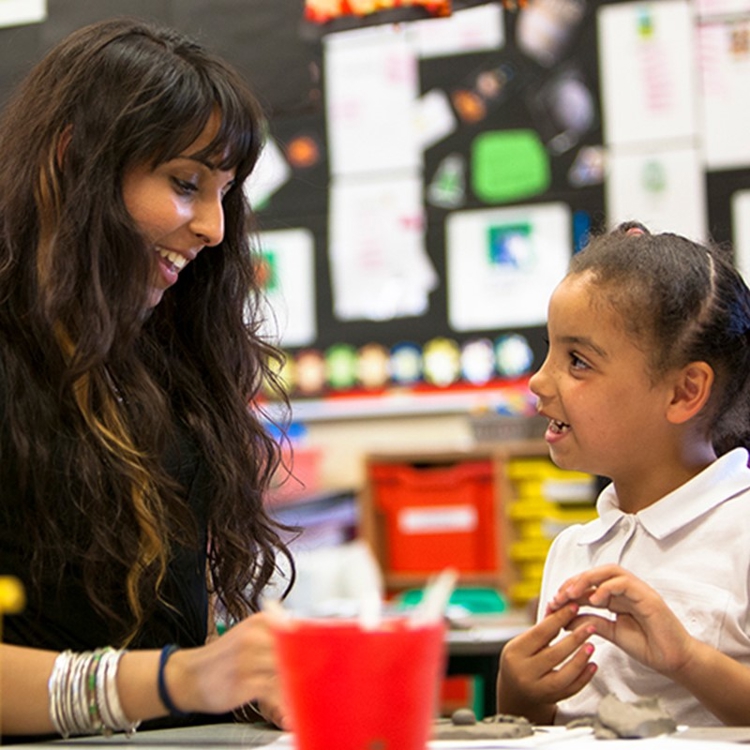
Skills
Make a difference to young children’s lives with a degree in Primary Education Studies.
The only course of its kind in London and informed by our unique 183-year heritage in teaching and learning, this course gives you the knowledge and skills to carve out a sustainable career in the education sector or working with young children.
On our BA Primary Education Studies, our priority is ensuring that you graduate with a professional skillset. This incorporates;
- A hands-on, practical route into the education sector.
- Gain a deep understanding of working life in schools, the education system and the issues faced by classroom practitioners.
- Those with Teaching Assistant experience, can become an accredited Higher Level Teaching Assistant (HTLA), formally recognised as a graduate level outcome.
- These three strands will ensure that you are ready for the practical realities of the education sector.
A strong vocational degree: This newly developed, strongly vocational degree is ideal for students seeking a fulfilling career in education, while not wishing to immediately gain qualified teacher status.
You’ll also develop the attributes you need to succeed in the workplace, including:
- Written and spoken communication
- Problem-solving
- Teamwork
- Attention to detail.
Your employability is our priority from day one. An optional paid work placement gives you the opportunity to gain professional experience, or study abroad between Years 2 and 3.
Learning
Experience a dynamic, contemporary curriculum working with leading experts.
Working in both small groups and individually, you’ll enjoy a mix of lectures and seminars as you work through progressive modules, including:
- Education contexts: Uncover the contexts for education in the UK.
- Engaging Learning (Applying Froebel 1): Learn about the principles of early years pioneer, Friedrich Frobel, and about his connection with the University of Roehampton.
- Understanding Inclusion: A hands-on approach to understand inclusion and inclusive education.
In Year 3, you’ll have the chance to shape your own studies by conducting research on a self-selected topic. This enables you to explore and develop current knowledge in a chosen area of primary education studies before you graduate.
Throughout the course, you’ll be supported by a dedicated and passionate team of lecturers and sector professionals.
Enjoy a personal and practical approach to your studies. You’ll work in exceptional learning facilities, including:
- Access to the Froebel Archive, containing rare books, toys, and photos, collected over the past 200 years.
- The world-class University of Roehampton Library, which is staffed by friendly and dedicated staff who are here to help you. As soon as you join us, you will be able to enjoy all the benefits of our state-of-the-art resources.
Roehampton is internationally renowned for its work in early childhood studies. This course takes a distinctive Froebelian approach to the study of early years, grounded in the following principles:
- A holistic view of babies, young children, their families and the communities they are part of, making links with past, present and future.
- The centrality of play and (outdoor) environments for wellbeing and learning.
- Inclusion and connectedness, and a commitment to social justice in the field of early childhood.
- A commitment to recognising and responding to the individual experiences and understandings of children.
- Continued development of understanding of professionalism and professional reflection and action, linking theory, research and practice.
This course offers all students the option of a one-year paid work placement, to boost your employability even further. If you choose this route, you will take the placement following year two of your course, and then return to complete your degree.
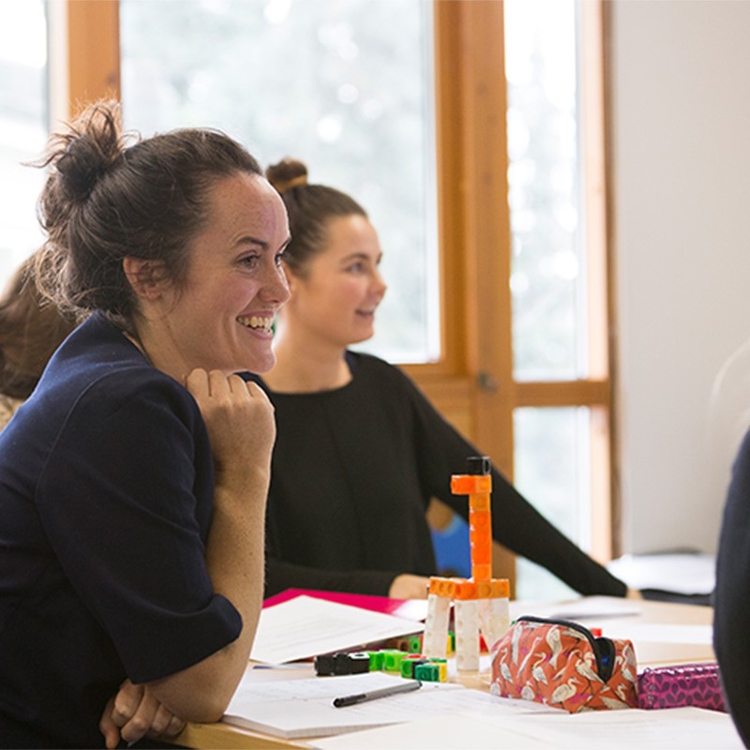
Assessment
Push yourself further with real-world assignments.
Throughout the course, you’ll experience a wide range of assessments that enhance your understanding and practical skills, while giving you a taste practices within the workplace. These include:
- online tests
- presentations
- essays
- practical assessments
You’ll leave Roehampton with an in-depth understanding of both the theory and the hands-on applications of working with young children, ready to take the next step.
In school of education, we prepare our students for enriching careers within the modern education system. We have a rich 183-year history and have been providing higher education to women for longer than any other university in the country.
Career
If you’re ready to learn, we’ll help you gain the confidence and opportunities to achieve.
Many take on roles in the education sector including:
- Education professional in primary and nursery care (teaching, administration or management)*
- A special needs professional in schools, children centres and the community
- A children’s charity undertaking policy and research, in community support, welfare or housing
- An NGO or central or local government department
*This is an academic degree – further study may be needed to gain professional qualifications.
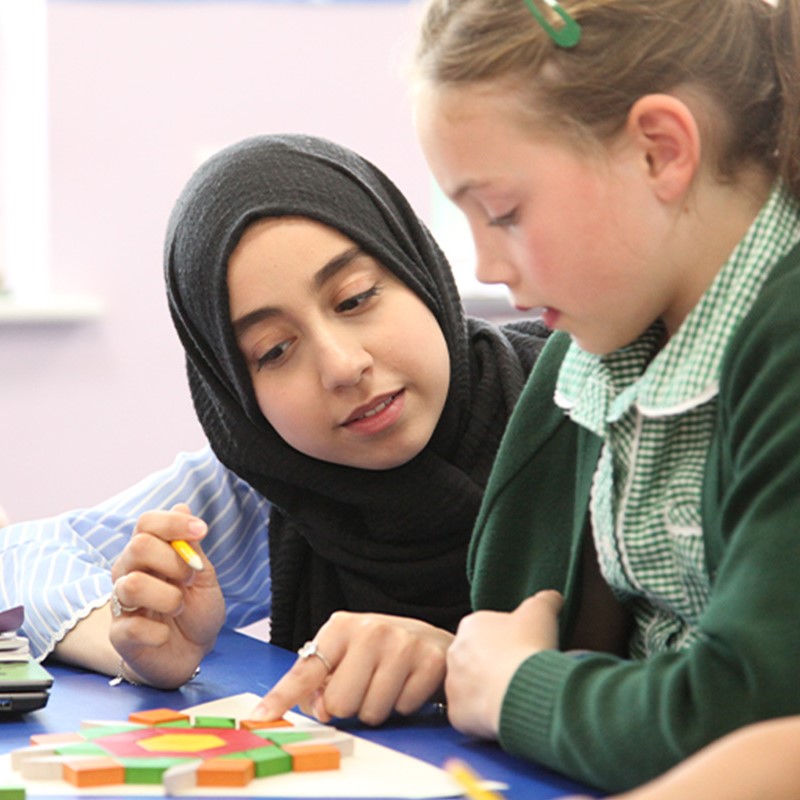
With our BA Primary Education Studies degree, you can also continue to postgraduate study – researching topics including SEN, disability and inclusion and more. Or taking courses that prepare you for teaching professions.
Our careers team is available to support you from the start of your studies until after you graduate. We will help you build your CV, prepare for interviews, and meet and learn from successful graduates working at the top of their careers. You’ll also have opportunities to work with our partners across London and beyond, and to attend a Roehampton jobs fair where you can find out about graduate opportunities and meet employers.
Open days
Get a real taste of our campus, community and what it’s like to study at Roehampton
Applying
Full-time UK undergraduate students apply through UCAS.
Entry tariff
112–128 UCAS points (or equivalent)
Foundation Year: 64–80 UCAS points (or equivalent)
Looking to work out your UCAS points or find out about our entry requirements? Find out more.
When we consider applications to study with us, we form a complete view of your achievements to date, and future potential, and can offer flexibility in entry requirements. Find out more about our Contextual Offer scheme.
General entry requirements
We recommend that all candidates have some recent experience of being in a classroom and observing teaching and learning. You may be able to arrange this with schools in your local area or that you have a contact with. If you would like help finding a school to visit then please use the Government’s Get into Teaching website -https://getintoteaching.education.gov.uk/train-to-be-a-teacher/get-school-experience
September 2025 entry tuition fees
UK (home) tuition fees
Undergraduate degree: £9,535
Foundation Year: £5,760
We offer a wide range of scholarships and bursaries. See our financial support pages for UK students.
We also provide other ways to support the cost of living, including free buses and on-campus car parking, hardship support and some of the most affordable student accommodation and catering in London. Find out more about how we can support you.
International undergraduate students apply through our direct application system.
Entry tariff
112–128 UCAS points (or equivalent)
Foundation Year: 64–80 UCAS points (or equivalent)
Looking to work out your UCAS points or find out about our entry requirements? Find out more.
When we consider applications to study with us, we form a complete view of your achievements to date, and future potential, and can offer flexibility in entry requirements. Find out more about our Contextual Offer scheme.
General entry requirements
We recommend that all candidates have some recent experience of being in a classroom and observing teaching and learning. You may be able to arrange this with schools in your local area or that you have a contact with. If you would like help finding a school to visit then please use the Government’s Get into Teaching website -https://getintoteaching.education.gov.uk/train-to-be-a-teacher/get-school-experience
September 2025 entry tuition fees
EU and international tuition fees
Undergraduate degree: £16,950
Foundation Year: £16,950
International Foundation Pathway: £16,950
We offer a wide range of scholarships and bursaries. See our financial support pages for international students.
We also provide other ways to support the cost of living, including free buses and on-campus car parking, hardship support and some of the most affordable student accommodation and catering in London. Find out more about how we can support you.


